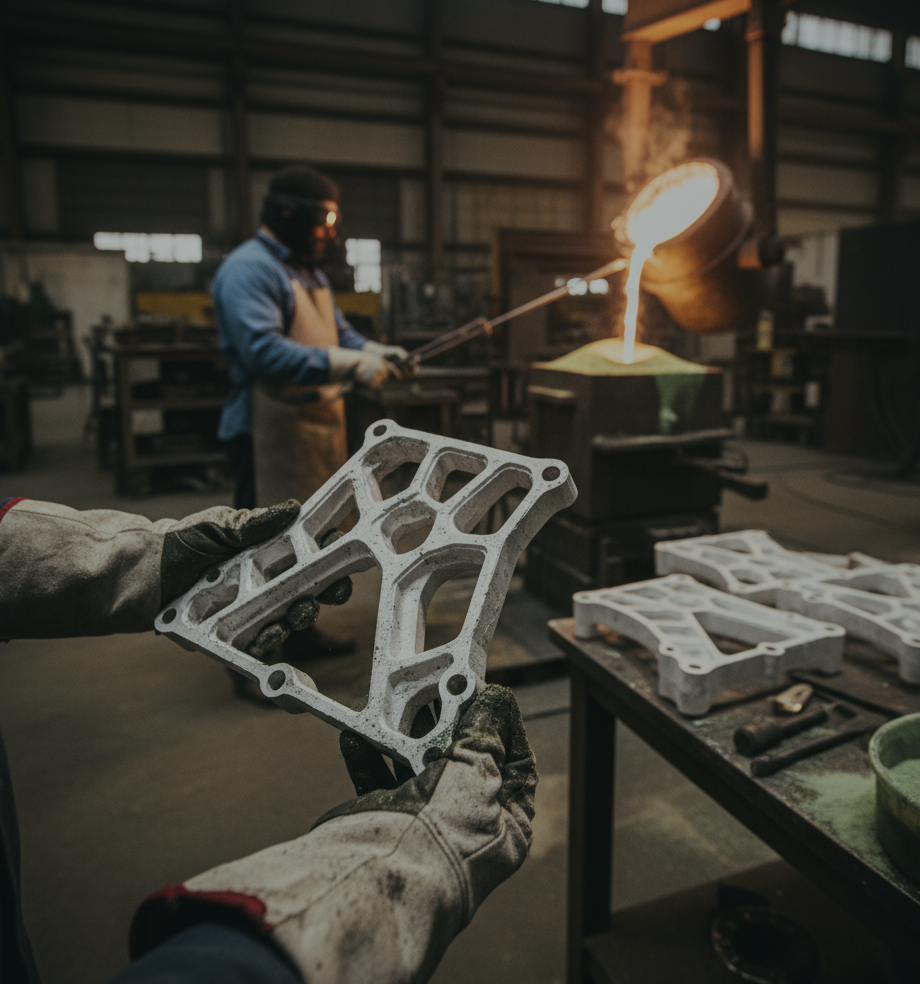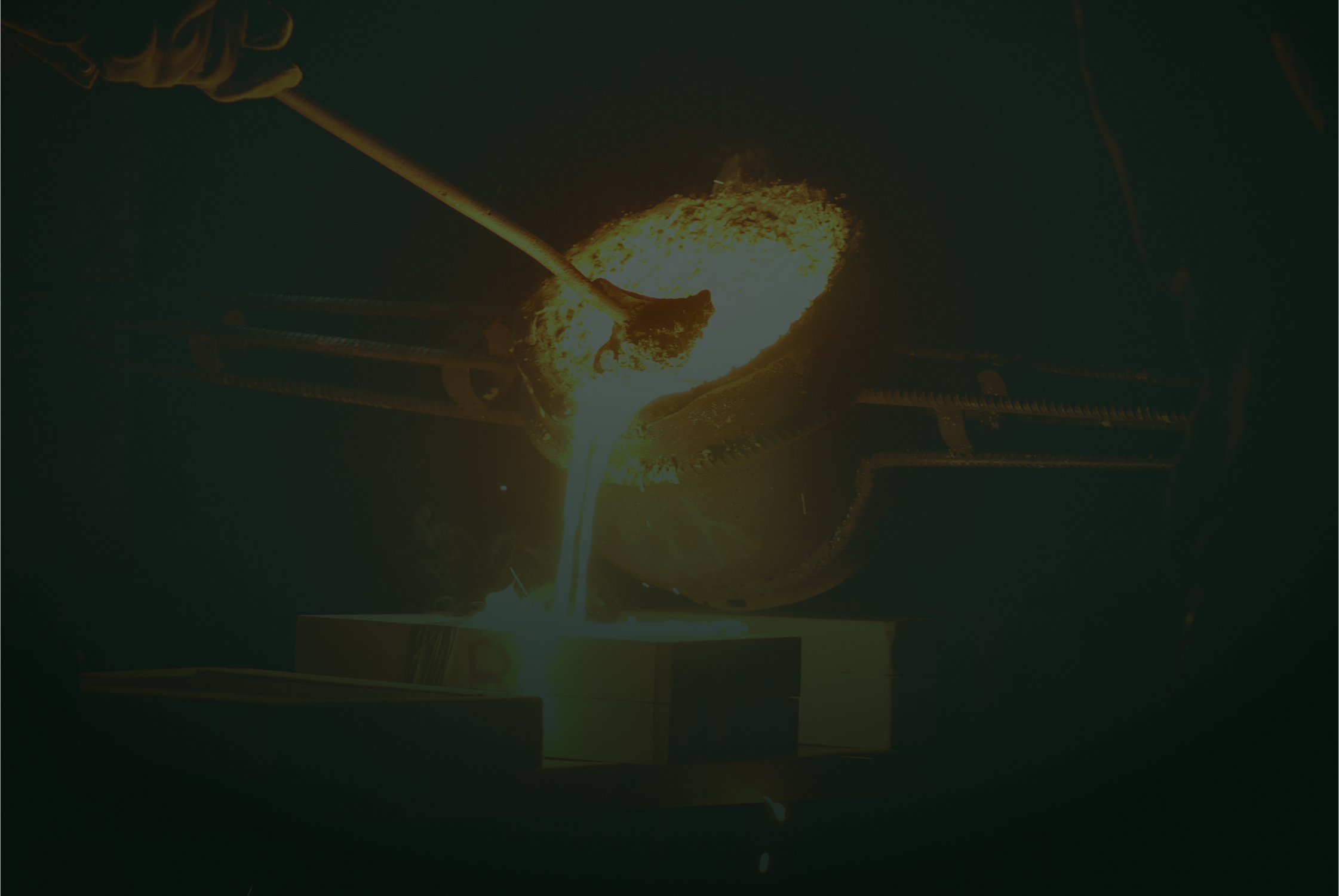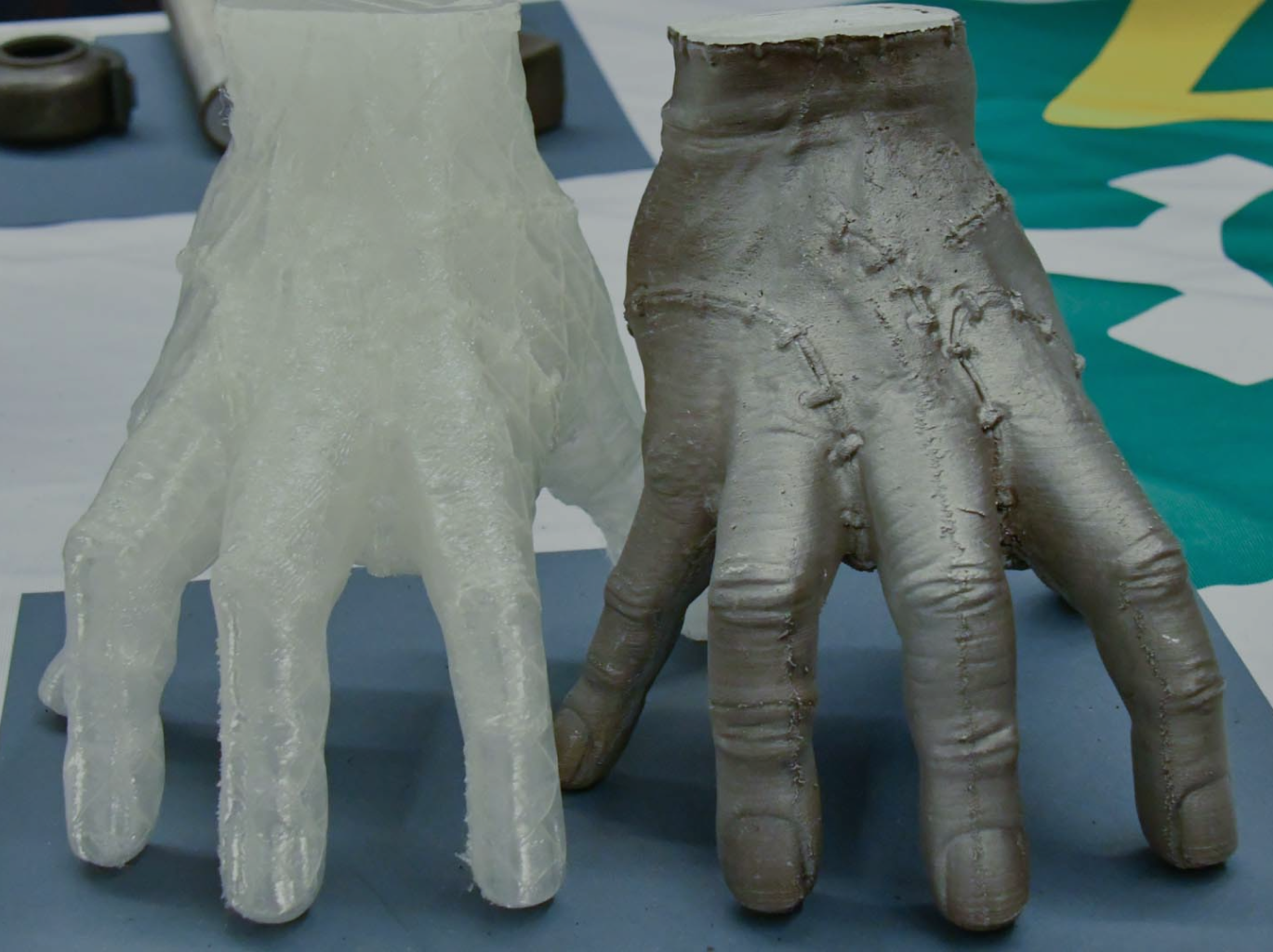
Why It Works
Lost foam casting replaces multiple steps in conventional casting with a single, efficient pour.
The pattern disappears as the metal enters, allowing for shapes that are impossible to machine or assemble. It achieves near-investment-casting precision without the slow, multi-layer ceramic process.
The pattern disappears as the metal enters, allowing for shapes that are impossible to machine or assemble. It achieves near-investment-casting precision without the slow, multi-layer ceramic process.
Tight tolerances: ±0.003 inch per inch typical
Thin-wall sections: Down to 0.7 mm in ductile iron
High surface quality: Comparable to investment casting
Versatile alloys: Aluminum, iron, steel, and nickel alloys





